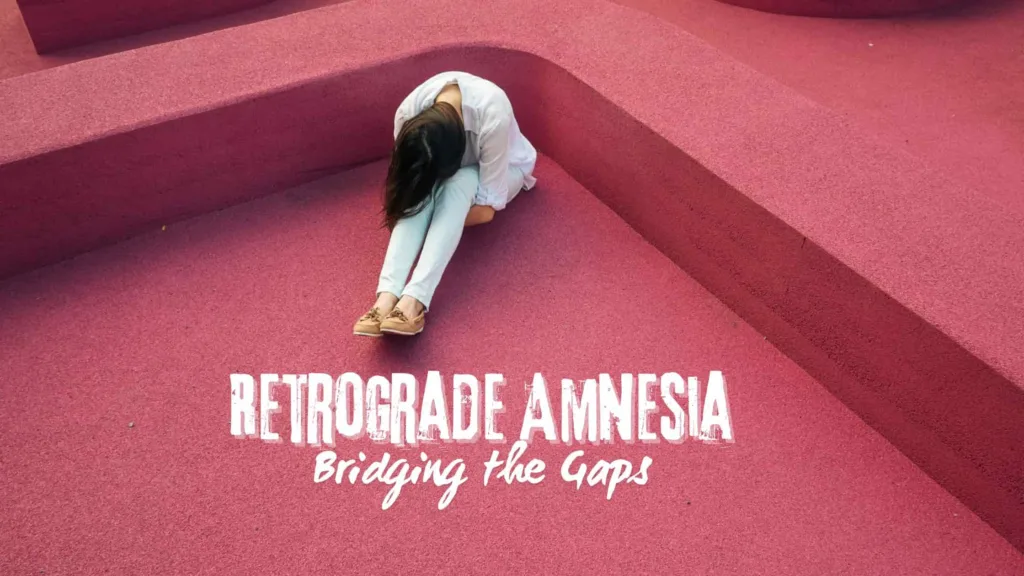Memory is really important for understanding who we are and what’s happening around us. But sometimes, things go wrong with memory, and one problem is called Retrograde Amnesia. It’s when someone can’t remember things from before, like past events or stuff they used to know well. In this article, we’ll talk about what causes retrograde amnesia, what signs to look for, how doctors diagnose it, how they treat it, and the efforts to learn more about it.
For example, let’s say someone with retrograde amnesia forgets their favorite childhood memories or how to do things they used to be really good at, like riding a bike or playing a musical instrument. It’s like those memories just disappear, leaving gaps in their book of memories.
Causes of Retrograde Amnesia
Retrograde amnesia occurs when someone can’t recall things from their past, like events or facts they used to know well. Here’s why this might happen:
- Bumps and Injuries: Sometimes, if someone hits their head really hard, it can mess up their memory. It’s like dropping your phone and it stops working right. Similarly, if something happens to the brain, which is like the body’s control center, it can mess with how it remembers things.
- Strokes: Another reason for retrograde amnesia is when there’s a problem with blood flow to the brain, like a traffic jam in the body’s highways. Without enough blood, the brain can’t work right, and memory problems can occur.
- Diseases: Certain illnesses, such as Alzheimer’s, can also lead to retrograde amnesia. Alzheimer’s is like a glitch in the brain’s system that makes it hard to remember things. It’s like trying to play a video game with a controller that’s broken – things just don’t work as they should.
- Stressful Events: Really scary or stressful events can also trigger retrograde amnesia. It’s like if something really scary happens, your brain might try to protect you by erasing memories of it. It’s like hitting a ‘delete’ button on those memories to keep you safe, but sometimes it wipes out other memories too.

Symptoms and Manifestations
When someone has retrograde amnesia, they forget things from the past. Here’s how it might show up:
- Forget Past Stuff: People with retrograde amnesia can’t remember things from before, like old events or memories. It’s like those memories disappear, and they can’t bring them back.
- Blurry Memories: Sometimes, even if they remember something, it’s not very clear. It’s like trying to remember a dream that’s fading away – you can kinda remember, but it’s not clear.
- Feeling Confused: They might feel lost or confused because they can’t remember things they should know. It’s like being in a new place without a map – you’re unsure where to go or what to do.
- Getting Frustrated: Not being able to remember can make them frustrated and anxious. It’s like trying to solve a puzzle with missing pieces – no matter how hard you try, you can’t figure it out.
- Missing Pieces: Sometimes, they might have big gaps in their memory, like parts of their life are missing. It’s like pages ripped out of a book, and they can’t fill in the story.
Diagnosis and Evaluation
When doctors think someone might have retrograde amnesia, they do a few things to check:
- Talking and Asking Questions: They talk to the person to see what they remember and what they don’t. They might ask about important things like birthdays or special events.
- Memory Tests: There are special tests to see how well someone’s memory is working. They might show pictures or ask questions to see if the person remembers.
- Checking Medical History: Doctors ask about any injuries or illnesses the person has had. This helps them understand if there’s anything that might be causing the memory problems.
- Brain Scans: Sometimes, doctors take pictures of the person’s brain to see if there’s anything wrong. It’s like taking a picture to see what’s going on inside.
- Thinking Tests: They might also do tests to see how well the person can think, remember, and solve problems. This helps them understand how the brain is working.
Related Article: Mood Congruent Memory: Emotions Shaping Memories
Treatment and Management Retrograde Amnesia
When someone has retrograde amnesia, there are ways to help them cope:
- Therapy and Exercises: They can work with therapists to improve memory and thinking skills. It’s like doing brain workouts to help them remember better.
- Using Reminders: Things like notes, calendars, and phone alarms can help remind them of important stuff they might forget.
- Following a Routine: Having a regular schedule can make things easier to remember. It’s like having a plan to follow every day.
- Support from Friends and Family: Having people who understand and are patient can make a big difference. It’s similar to having a supportive group encouraging you.
- Talking to a Therapist: If they’re feeling stressed or sad about their memory loss, talking to a therapist can help. It’s like having someone to talk to who can help them feel better.
- Medicine, if needed: Sometimes, doctors might give them medicine to help with feelings like anxiety or sadness.
Retrograde amnesia is a big deal in brain science, feelings, and medicine. It helps us learn more about how memory and thinking work. Even though it’s hard for people with this condition and their families, scientists are working hard to understand it better and find better ways to help.
It’s really important to be nice and caring to those with memory problems. If we all work together and come up with new ideas, we can make life better for them.
